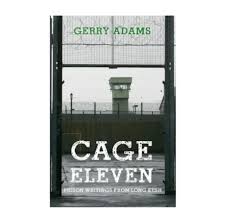The Political Legacy of Gerry Adams

Introduction
Gerry Adams, a central figure in Northern Ireland’s political landscape, has been instrumental in shaping the course of Irish republicanism and the peace process. His journey in politics not only reflects his personal evolution but encapsulates the broader struggles and achievements of the Irish people. Adams’ actions and ideology continue to resonate within contemporary discussions on governance, national identity, and reconciliation.
The Early Years and Political Activism
Born in 1948 in Belfast, Gerry Adams became involved in political activism at a young age, influenced by the social and political turmoil surrounding him. He joined the Provisional Irish Republican Army (IRA) in the late 1960s, believing in the need for armed struggle to achieve a united Ireland. However, over the decades, his philosophy shifted towards negotiations and political solutions.
Leader of Sinn Féin
Adams became the president of Sinn Féin in 1983, leading the party towards mainstream politics. Under his leadership, Sinn Féin moved from advocating armed struggle to pursuing diplomatic avenues. His high-profile meetings with British officials, including then-Prime Minister John Major and later Tony Blair, played a crucial role in the peace talks that culminated in the Good Friday Agreement of 1998.
Good Friday Agreement and Peace Process
The Good Friday Agreement was a landmark moment in Northern Ireland’s history, largely facilitated by Adams’ efforts to negotiate peace. The agreement established a devolved government for Northern Ireland and set the framework for political cooperation among different communities. Adams’ commitment to this process demonstrated a significant shift from violence to dialogue, although it also drew criticism from hardliners within the republican movement.
Recent Developments and Legacy
In recent years, Adams has retired from frontline politics but continues to be a prominent commentator on issues relating to peace and justice in Ireland. The 2023 commemorations of the Centenary of the Easter Rising highlighted his contributions to the Irish nationalist cause. His legacy remains a topic of debate; while many view him as a peace champion, others are critical of his past affiliations with the IRA.
Conclusion
Gerry Adams’ life is a testament to the complexities of politics and the struggles for identity and peace. As discussions about Northern Ireland’s future evolve, understanding Adams’ role becomes increasingly significant. His transition from armed struggle to political negotiation serves as a powerful lesson in conflict resolution. Looking forward, the values and lessons drawn from his experiences may continue to influence new generations in their pursuit of peace in a historically fraught region.









